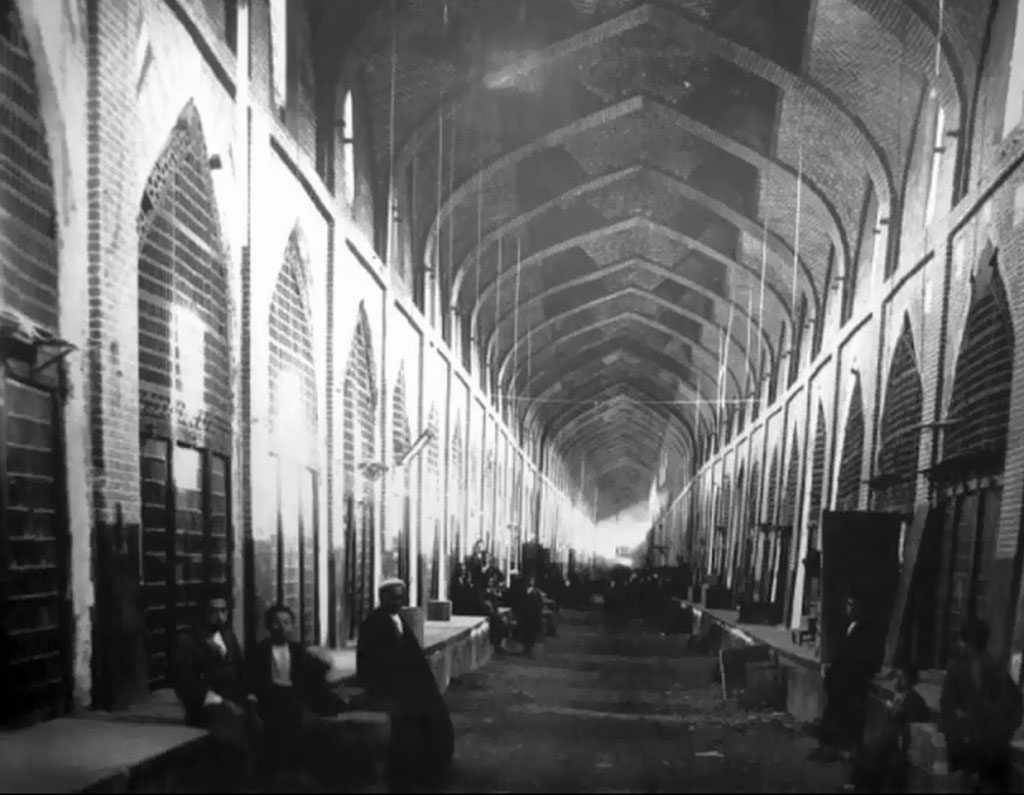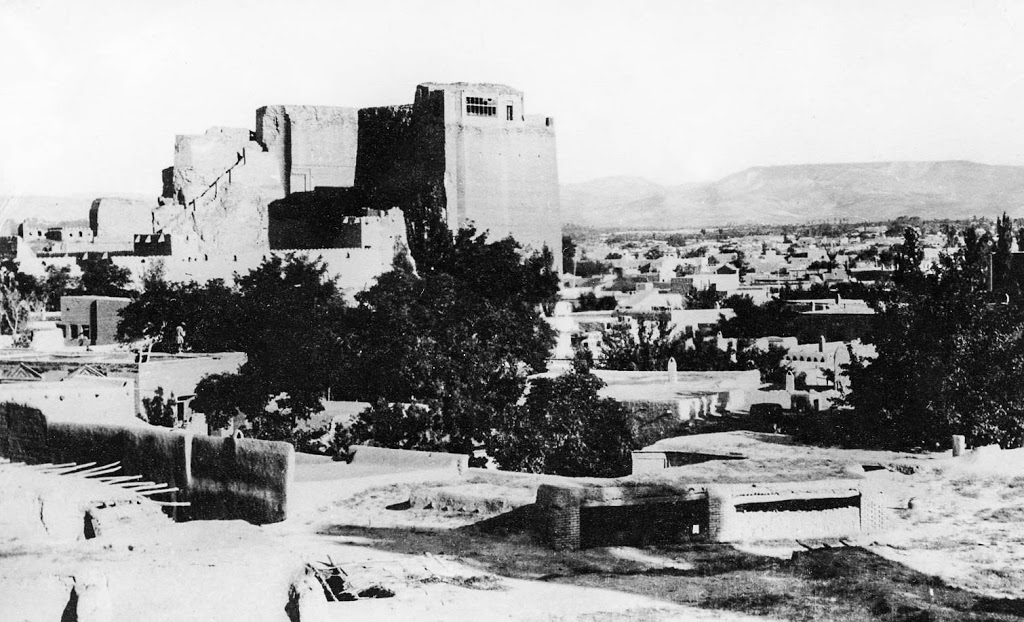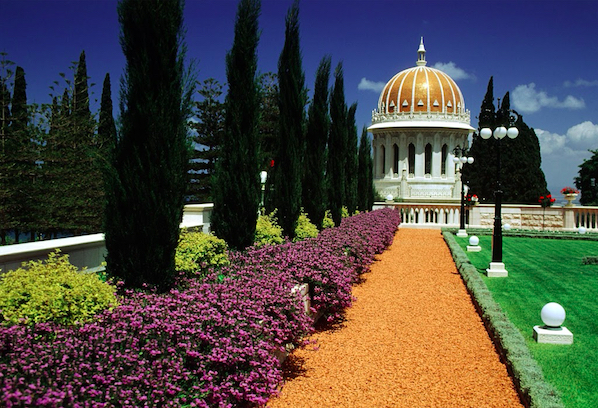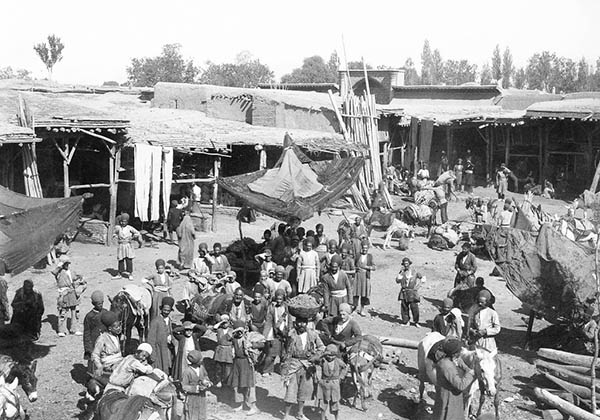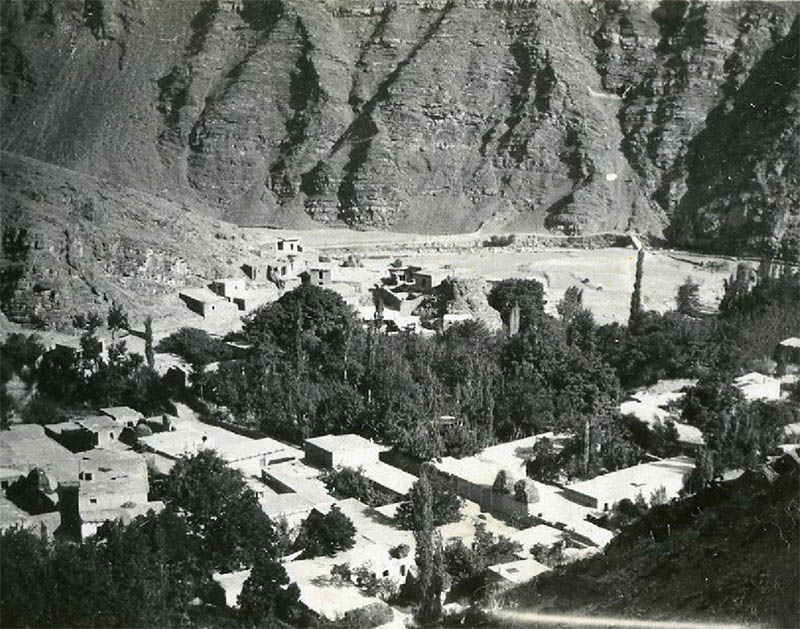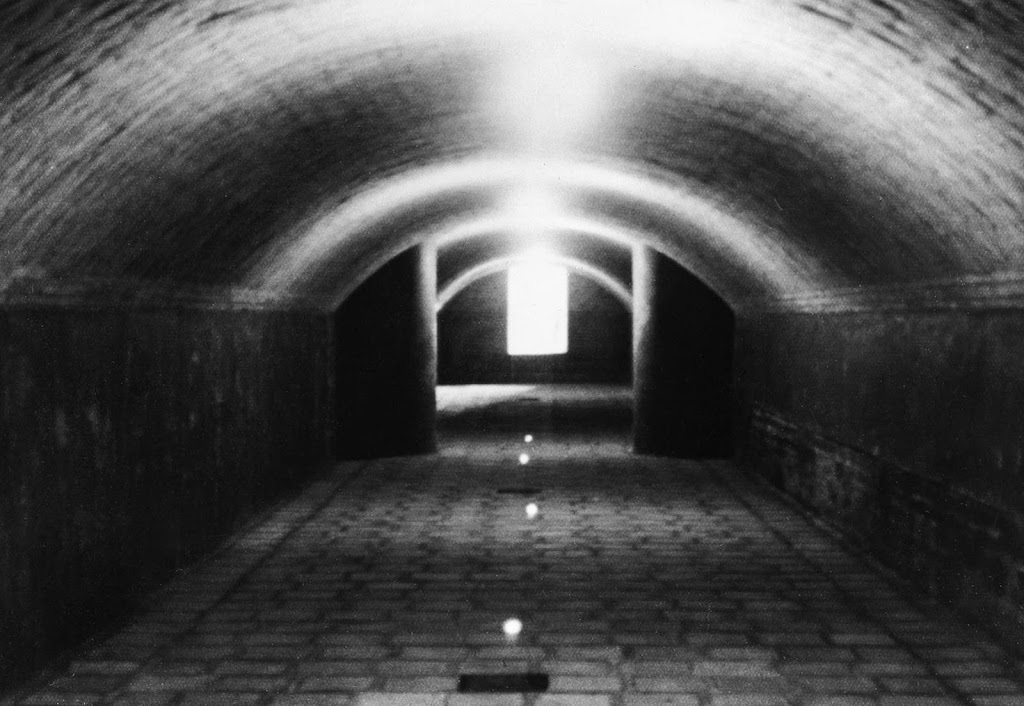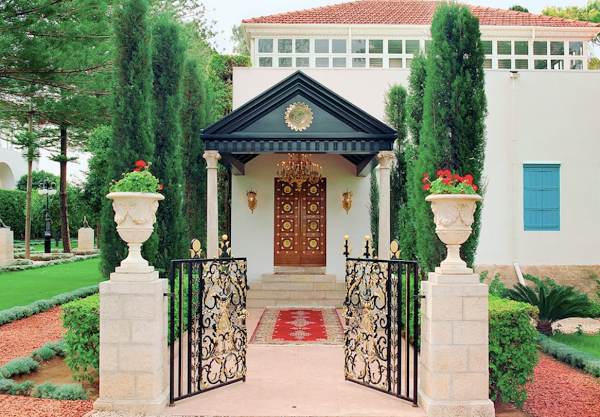A Stunning and Precocious Wisdom
The Bab was born as Siyyid ‘Alí-Muhammad, on October 20, 1819 in Shiraz, Persia. His father died early, so He was raised by His maternal uncles, who were merchants.
The Bab demonstrated a stunning and precocious wisdom as a child. At six years old, His uncles sent Him to a school taught by a local religious scholar. On His first day, He was asked to recite the opening words of the Qur’an. His peers did this often, even though they spoke Persian and did not understand the Arabic words of the Qur’an. When His turn came, the Bab instead explained the meaning of the verses, demonstrating both a dazzling understanding of the foreign text, and a unique independence of thought that later characterized His legacy.
As a child, He preferred prayer and contemplation to games or sports. These spiritual leanings continued into adulthood. As a young man, He agreed to oversee His uncle’s expanding business, but closed up shop when His spirit felt called to undertake a months-long religious pilgrimage. He could be found standing for hours in mosques and shrines wherever He traveled.
Concerned about His spiritual preoccupations, His mother, a practical woman, arranged for him to marry His childhood companion, Khadijih. Khadíjih had dreamt that the Báb was a man with an extraordinary calling, and agreed to the match.
From Dream to Faith
Shortly after marriage, in 1843, the Báb had a dream of His own — one that would eventually incite a fervor throughout Persia. He dreamt He was communing with the grandson of the Prophet Muhammad, and upon waking, said,
“I felt the Spirit of God had permeated and taken possession of My soul. My heart was thrilled with the joy of His Divine Presence, and the mysteries of His revelation were unfolded before My eyes in all their glory.”
In this dream, the Bab understood that God wanted Him to bring a message to the people of the world. It was then that He officially took the title ‘the Bab,’ which means The Gate, and set about laying the groundwork for the Promised One, still to come.
A Movement Builds
Millennial fervor was sweeping the globe during the 1840s. Many believed the Promised Messenger of God would soon appear. Christians in North America awaited the return of Christ, while Muslim scholars pinpointed Persia as the place of Muhammad’s return. This inspired many souls into active search.
Little wonder then, by 1844, eighteen men and women felt their hearts leading them like compasses to Shiraz and directly to the Bab. Once assembled, He called these first disciples, “the witnesses of the Dawn of the promised Day of God.”
He clarified, however, that a messenger greater than Himself was expected, one who would be the unifier of humankind. He asked them to return to their home provinces and share this announcement with both conviction and kindness. “The path of guidance is one of love and compassion,” He advised them, “not of force and coercion.” The Bab then travelled to Mecca, the holiest city in the Muslim world, to make a public announcement of this new faith.
Violent Opposition
In the mid-1800s, Persia was ruled by a complex network of clergy and civil leaders. A few among them accepted the Bab’s message and saw signs of a Divine Messenger in Him. Most were angered, arousing violent mobs in nearly every city, and calling for brutal forms of torture against the Bab’s followers. At times, they even designed extermination plans that called for the killing of two Babis each day.
Eventually, the indignation of the clergy turned directly against the Bab. At high noon on July 9, 1850, He was lead through the streets of Tabriz, Persia, with a long rope tied to an iron collar. Crowds lined the roads and filled the public square as guards suspended Him from the wall. Seven-hundred-fifty rifles fired in unison, and ended the Bab’s life.
Over the course of His lifetime, Baha’u’llah endured imprisonment, brutal torture, exile on foot in the dead of winter, and multiple assassination attempts. Throughout these trials, He wrote over a hundred volumes of scripture and twenty thousand letters, detailing social and spiritual teachings that prescribed freedom from racial prejudice, the equality of women and men, harmony between science and religion, and the balancing of extremes of wealth and poverty.
Early Life
Baha’u’llah’s life did not begin in hardship. He was born in 1817, in a mansion on the eastern edge of Tehran, Persia’s capital city. His parents named Him Mirza Husayn-‘Ali.
Tehran was a bustling city, home to over a hundred thousand people — peasants, merchants, landowners, and the king. Baha’u’llah’s father was a well-regarded advisor to the king and eventually became governor of a province. Yet, as a young man, Baha’u’llah was not impressed with life at the royal court, seeing it ruled by envy, gossip, and corruption.
Baha’u’llah received the basic tutoring given to all aristocratic Persian boys: reading, writing, and lessons on Persian culture. But, like the Bab, He appeared to have an extraordinary wisdom. As a teenager, His father often found Him at the royal court, deep in conversation with thinkers, scholars, and legal experts. To many, it seemed natural that He would seek an official position once He came of age.
The Father of the Poor and Mother of Consolation
At 18, He married a woman of considerable wealth, named Asiyih Khanum. Once married, they retreated to the family’s countryside estate, in a village called Takur. They hosted the poor in their home night and day, offering feasts to the hungry, and conversation for the lonely. They were known throughout the village as the Father of the Poor and the Mother of Consolation. This occupation suited Baha’u’llah and He declined to take a position of power in the government.
Later, in His divinely inspired teachings, Baha’u’llah included instructions for the treatment of the poor: “O Children of Dust! Tell the rich of the midnight sighing of the poor,” and “O ye Rich Ones on Earth! The poor in your midst are My trust, guard ye My trust.”
Accepting a New Faith
Though they’d never met, Baha’u’llah received a handwritten letter from the Bab in 1844. He read one page aloud and exclaimed that the Bab’s “soul-stirring words” were “endowed with the same regenerating power” of the Holy Books of the past. From that moment on, He joined the Bab’s followers in sharing the news of the coming Promised One. While His family was surprised at His involvement in the new and unfamiliar movement, some local leaders found themselves taken with His deepening spiritual wisdom and they relinquished ties with their own religious teachers.
During the brutal persecutions against the Bab’s followers (the Babis), Baha’u’llah became a vital support and comforter to His companions. He invited fellow believers to stay in His home and physically protected men and women from angry mobs. When Babis were imprisoned, He used His connections in the court to plead their cases and deliver clothing and food to them.
Imprisonment
As time passed, His profile among the Babis grew and His connections in the court became strained. Eventually, He was arrested and cast into an underground dungeon, known as the Black Pit. His home was ransacked and His family was stripped of their possessions.
Upon His arrival to the Black Pit, guards led Him through a long dark corridor, wading through ankle-deep filth as vermin ran across the floors. He was bound to five of His companions by chains placed around their necks. The restraints weighed up to a hundred pounds. Every time one prisoner moved, the chains cut the necks of the others. He spent four long months in these conditions.
The Rarest of Spiritual Experiences
While in prison, Baha’u’llah encountered the rarest of human experiences: a transformative vision that revealed to Him a Divine Message.
“While engulfed in tribulations I heard a most wondrous, a most sweet voice, calling above My head,” He later recalled. “Turning My face, I beheld a Maiden — the embodiment of the remembrance of the name of My Lord — suspended in the air before Me.”
The Maiden made it clear He was the Promised One foretold by the Bab and destined to be the unifier of humankind. About His Mission, Baha’u’llah wrote:
“We, verily, have come to unite and weld together all that dwell on earth.” “Strive, O people of God, that haply the hearts of the divers kindreds of the earth may, through the waters of your forbearance and loving-kindness, be cleansed and sanctified from animosity and hatred.
Exile and Growth of His Cause
Unlike the Bab, Baha’u’llah was not executed for His claims. Instead, He was exiled throughout the Ottoman and Turkish Empires. Communities committed to His message of peace and unity grew in every place He was exiled. By the time of His passing there were Baha’is in Iran, Iraq, Turkey, Egypt and India.
Bahá’u’lláh passed away on 29 May, 1892 of natural causes at the Mansion of Bahjí just outside the prison-city of Akka, positioned along the northern coast of present-day Israel. Nine days later His will was unsealed. It designated ‘Abdu’l-Bahá as His successor and head of the Bahá’í Faith. Two years later, the first American Baha’i community began to grow in Chicago.
Today, millions around the globe are guided in their personal lives and social endeavors, by the teachings of this Divine Messenger Who “consented to be bound in chains that mankind may be released from its bondage” and accepted imprisonment “that the whole world may attain unto true liberty.”





